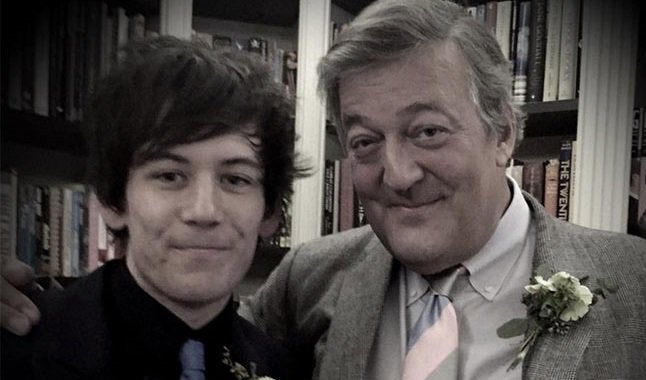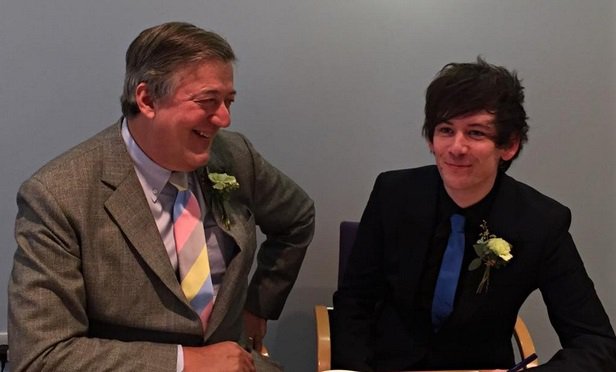Stephen Fry says husband Elliot Spencer has become an ‘expert’ at monitoring his mental health
By Will Stroude

Stephen Fry has credited husband Elliot Spencer with helping to provide him with a vital support system when it comes to dealing with his mental health.
The actor says his husband of two years is now an “expert” when it comes to working out whether his low moods are natural or linked to ongoing mental health issues.
Stephen, who has been diagnosed with bipolar disorder, opens up about his experiences in a new film for Heads Together, a mental health awareness initiative currently being backed stars including Andrew Flintoff and Professor Green, as well as the The Duke and Duchess of Cambridge and Prince Harry.
In the film, which was directed by comedian Simon Amstell, Stephen speaks to his psychiatrist Bill on a bench in St James’s Park about his well-documented mental health issues, which included an attempt to take his own life while filming a documentary in Uganda in 2012.
Recalling the incident, the former QI host says: “It had been very tough and something had been building up inside of me. I can recall talking out loud; ‘It’s pointless, it’s pointless’.
“Everything about my life had come to it’s end.”
The 59-year-old continues: “I find it very very difficult to look at myself. There are times when, having done the amount of TV and stuff I’ve done, there are times when I’m watching television and my ugly mug will pop up and I can see how unhappy I am.”
Explaining that speaking to others about his mental health proved to be “a strong part of the healing,” Stephen credits his husband Elliot, who he married in January 2015, with providing a vital source of ongoing support.
“My best friend of all, my husband Elliot, he’s become very expert in detecting when my moods are more than just being annoyed because I’ve locked myself out of the house to a genuine fall in mood,” he says.

Stephen’s candid film comes as Heads Together release a new YouGov poll showing that men are less likely than women to discuss mental health.
Of those surveyed, four out of ten (42%) men have had a conversation recently about mental health, compared to six out of ten (58%) women.
The figures also show that men (29%) are less likely than women (37%) to expect to talk about their mental health in the next six months although men and women find these conversations equally helpful (83%).
Visit youngminds.org.uk and headstogether.org.uk to find out more information about the initiatives.
If you or someone you know needs support the Samaritans are available 24 hours a day on 116 123 or visit their website.
More stories:
Orlando Bloom finally breaks silence on nude photo leak
George Shelley goes public with new boyfriend as he cops a feel in cheeky Instagram snap
